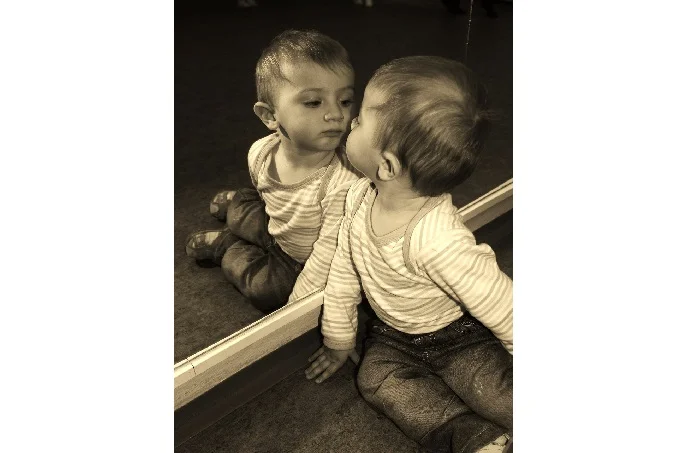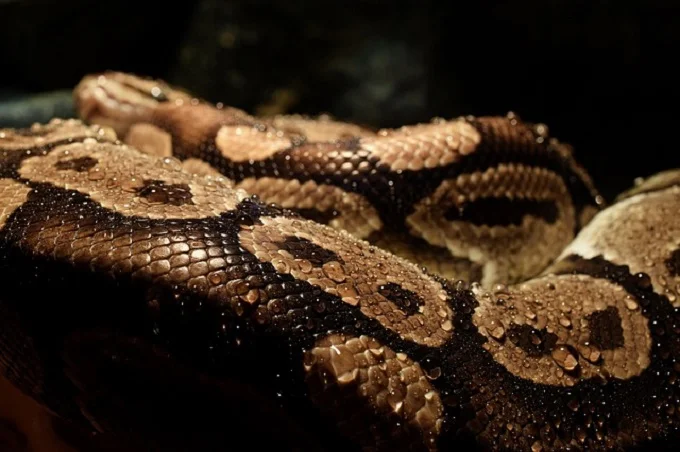African superstitions: Science backs up some African beliefs

Not all African superstitions are ridiculous. There are some prove to believe, for example, the reflection in the mirror, the sweeping house at night, etc., are among those back by science. Contrary to common belief, superstitions are not exclusive to Africa. Black cats, Friday 13, women with empty buckets, crossing cemeteries at night, and stepping beneath ladders are all feared in Western cultures.
You won’t receive a reasonable response from Europeans when you ask why ships, boats, and storms are named after women or the Celts who sincerely believed that with the help of mirrors, you could change your destiny, bring wealth and luck into your life. This is due to the fact that superstitions are nearly never supported by rational explanations.
Is it worth believing in African superstitions just because they’re fascinating? Africans, believe it or not, have some of the most bizarre superstitions. Consider this: hitting your left foot on a stone is bad luck, walking out when you hear a bush baby’s piercing scream is bad luck, staring in the mirror at night is terrible luck, and so forth. When it comes to African myths, the vast majority of Africans accept them without a doubt.
What are some of the advantages of superstitions?
So, why haven’t we gotten rid of these notions? Is it true that superstitions serve any purpose? Certain African superstitions, according to anthropologists, are truly worth believing. In actuality, these beliefs exist to accomplish the following goals:
- They promote positive conduct among society’s members.
- They are a coping technique in the face of calamity, providing explanations for unexpected events.
- People use superstitions to attempt to influence their fates or foresee their futures.
- Superstitions are often used to intimidate and deceive people, so be wary of con artists.
While some myths are unreasonable, science has shown many others to be factual. We’ll go through the top five African superstitions worth believing in this post.
The most absurd African beliefs that are genuinely true
Don’t tell anybody you’re pregnant until the second trimester

This is by far the most popular pregnant superstition. In general, African women are advised to keep their pregnancies hidden. The ghosts, according to legend, may hear and jinx the pregnancy. This, however, has a scientific reason. When you talk about your pregnancy, you’re likely to get a lot of unanswered questions. And we all know that uncertainty causes a lot of stress and anxiety. Anxiety is harmful to both you and your child. Furthermore, since many miscarriages occur during the first trimester, many women choose to remain silent until the risk has gone.
Psychological stress in expecting moms, according to one study, increases the probability of an early miscarriage. Consider following this one if you’re expecting a child. It’s African folklore worth believing in.
Sweeping your home at night is not a good idea

According to popular belief, if you clean your home at night, you will lose your money. Sweeping at night, in other words, is a metaphor for sweeping out your money. When you realize that health equals wealth, this makes sense. To be healthy, you must get enough sleep. When you’re dragging a broom all over the home in the middle of the night, you can’t sleep comfortably. Furthermore, sweeping would result in a lot of dust and allergens drifting about the home, obstructing the airways of the residents.
Sleep deprivation has been linked to cardiovascular illness, mental health issues, and other metabolic disorders, according to a study. When individuals don’t get enough sleep, they’re more prone to waste their money and time seeing medical professionals.
Vulture flesh should not be consumed

Vultures are typically thought of as dead scavengers. They’re the garbage collectors who eat the dead and unclean stuff. Vultures are thus avoided by people all across the globe. Vultures are not domesticated, and they do not consume them. Vultures are, in fact, considered death harbingers in African traditional religion. It is recommended that you toss a stone at a vulture perched on your roof. Continue tossing stones until the object flies away.
Vultures have a more complicated digestive system that enables them to endure carrion-based diets, according to UCLA researchers in the Department of Ecology and Evolutionary Biology. If humans consume or touch vultures, they risk contracting food poisoning. Vultures should be avoided, according to African folklore.
The reflection in the mirror

If you’re in touch with your African heritage, you’re undoubtedly aware that showing a youngster a mirror is not a good idea. According to legend, the kid may recall previous lifetimes, or their spirits may get stuck. None of them can be reasonably explained. These excuses were most likely devised by the elderly to dissuade anybody from violating the practice. A thorough examination may show the true explanation behind this superstition. If newborns (or very young children) develop a habit of staring at themselves in the mirror, they may break it and injure themselves. Mirror gazing may also make you feel good about yourself. It may also lead to concerns with body image.
Here’s a genuine story: A youngster glanced in the mirror after donning a Halloween costume and was startled by what he saw. The youngster sobbed and shouted. He was disturbed by his outfit and appearance for days. So it could be a good idea to stick to the custom of keeping mirrors reserved for adults exclusively.
One of the African superstitions worth believing in is Sacred Pythons

Pythons are either worshiped or venerated in numerous African cultures. People are prohibited from killing pythons in various regions of Nigeria and Kenya. People in Kenya, for example, think that pythons bring rain. Pythons are claimed to defend crops and other types of livelihood in regions of Nigeria. In certain regions of Nigeria, those who kill pythons are forced to provide the snake with a costly, proper burial.
Snakes like pythons and other types of snakes have been proved to be helpful in reducing rat populations and other crop-destroying pests. Pythons play a crucial part in preserving the ecosystem’s equilibrium. It is certainly not a smart idea to kill them. Finding safe methods to cohabit with them is the answer. It is, in fact, feasible. After all, our forefathers did it for millennia.
Conclusion
Superstitions aren’t only a result of a lack of knowledge or creativity. They are sometimes backed up by science. So, before you dismiss African beliefs as unfounded, think about it. Perhaps science has shown that it is worthwhile to believe.




